
“We have been so carried away by the having world of Baikal that we have forgotten about its shores. However, nature here has worked so hard and with such fantasy that the whole two thousand kilometer shoreline of the glorious sea presents a unity of landscape of striking and inimitable beauty. It seems as if Nature here was competing with itself, was trying not to repeat itself. It framed in Bukhta Peschanaya (Sandy Bay) with two capes, the Bolshoy and Maly Kolokolny (The Big and Little Bell-towers) like ancient temples. When, at sunrise, on the background of golden luminescence, the silhouettes of the capes arise, it seems that just now a rich chime will sound out, church bells will pour out over the awakening Baikal… It sculptured Cape Dyrovaty in the form of a mighty elephant, or more exactly, a mammoth that had come to drink of the living water, dipped his trunk into the deep blue, and stopped dead, awestruck by the changeable wide spaces opening out before him...” (Mark Sergeev)
The Itinerary Description
Day 1 - July, 15 - 1st Departure date
- August, 05 - 2nd Departure date
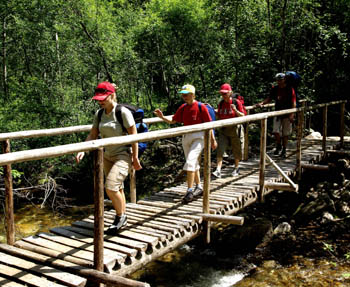 Welcome to Irkutsk – “Paris of Siberia”, capital of its great Eastern part – Siberia’s Microcosm and the gateway to Siberia’s Pearl – Lake Baikal! Upon arrival and meeting - we will have sighseeing tour of Irkusk visitng its most atmospheric sites. After lunch in the downtown restaurant we we depart by coach to the start of our trekking trip - to the town of Sludyanka (127 km south of Irkutsk) which is located at the southern tip of Lake Baikal. The town takes its name from the Russian word for mica, reflecting the numerous mineral deposits in the area. Welcome to Irkutsk – “Paris of Siberia”, capital of its great Eastern part – Siberia’s Microcosm and the gateway to Siberia’s Pearl – Lake Baikal! Upon arrival and meeting - we will have sighseeing tour of Irkusk visitng its most atmospheric sites. After lunch in the downtown restaurant we we depart by coach to the start of our trekking trip - to the town of Sludyanka (127 km south of Irkutsk) which is located at the southern tip of Lake Baikal. The town takes its name from the Russian word for mica, reflecting the numerous mineral deposits in the area.
Upon arrival check in at Mr Zhigalov’s guest lodge located on the territory of private museum which has great exhibition of semi-precious stones of Lake Baikal area.
Visit the museum. Before dinner enjoy Siberian steam-bath (banya). Overnight.
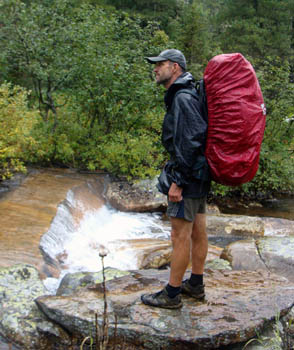 Day 2 - July, 16 (August, 06) Day 2 - July, 16 (August, 06)
Today we start our 3 – days trek trip to the Peak of Chersky Mountain – “Khamar Daman Mosaics Hike”. The Peak named after a Polish political refugee and scientist who had been exiled to Siberia, lies in the Khamar-Daban mountains range often referred to as the most beautiful ridge necklace of Lake Baikal. So, after breakfast we get our things packed and start walking up along the Sludyanka River, which valley is very picturesque and the landscapes are really astonishing. We will be accompanied by a hiking guide and horse guide with horses that will carry our camping gear and foods.
After a picnic lunch we will reach a meteorological station of "Khamar-Daban", having risen to a mark of 1430 m above sea level. Here we will set up out first tent camp, have dinner prepared over the campfire. Overnight in tents under starry sky. Total walking distance today is about 10 km.
 The Khamar-Daban with its highest precipitation of up to 2000 mm a year can also be compared to Siberian tropics in the south-east of Baikal. Untouched diverse wildlife area that supports rare specie of plants many being relict dating back to pre-ice-age periods, wild animals and birds including brown bear, elk and even northern deer, stone partridge etc , gorgeous mountains rivers and waterfalls, Siberian taiga-woods with ancient and still flourishing Siberian pine and 500-year old fragrant poplars, alpine meadows and lakes, tundra areas …and very close proximity to Lake Baikal make this area a Mecca for those who love active outdoors on the mountain treks. In two respects, our round trip hike today we can call a historical one. On one hand, the ancient natural life, and the two Old Tea Roads that we will be partially walking along today. The Khamar-Daban with its highest precipitation of up to 2000 mm a year can also be compared to Siberian tropics in the south-east of Baikal. Untouched diverse wildlife area that supports rare specie of plants many being relict dating back to pre-ice-age periods, wild animals and birds including brown bear, elk and even northern deer, stone partridge etc , gorgeous mountains rivers and waterfalls, Siberian taiga-woods with ancient and still flourishing Siberian pine and 500-year old fragrant poplars, alpine meadows and lakes, tundra areas …and very close proximity to Lake Baikal make this area a Mecca for those who love active outdoors on the mountain treks. In two respects, our round trip hike today we can call a historical one. On one hand, the ancient natural life, and the two Old Tea Roads that we will be partially walking along today. |
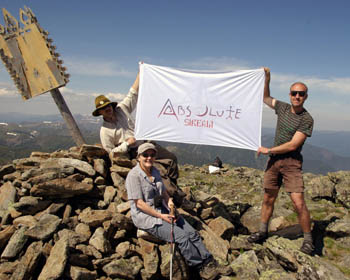 Day 3 - July, 17 (August, 07) Day 3 - July, 17 (August, 07)
After breakfast having left our backpacks down in the camp we will hike about 5 km uphill along the serpentine path to the Peak of Chersky Mountain, which opens up fantastic vistas of Lake Baikal, mountain ridges of the Khamar-Daban and Eastern Sayan, and “Heart” Lake (named so because of its shape) found at the mountain foothill.
Upon return to the base camp at the Meteorological Station will be dinner prepared over the campfire and overnight in tents. Total walking distance today is about 14 km.
Day 4 - July, 18 (August, 08)
Today after breakfast, taking only cameras and lunch boxes we will go on a full-day walk to the water falls of the river Kamenka and the cascade of waterfalls on the river Podkomarnaya. Today round trekking trip will take us 6-7 hours en route 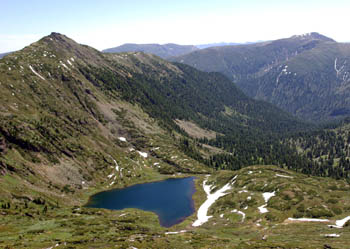 visiting most of the beautiful environs and picnicking near the river Kamenka. Return to the camp for dinner and overnight. Total walking distance today is about 10 km. visiting most of the beautiful environs and picnicking near the river Kamenka. Return to the camp for dinner and overnight. Total walking distance today is about 10 km.
Day 5–July, 19 (August, 09)
After early breakfast we start out coming back to Sludyanka. Total walking distance today is more than 18 km which with stops en route will take almost 5 hours. Lunch and short rest will be in one of picturesque sites of descent in the Sludyanka River valley.
Upon arrival – check in at Zhigalov’s guest house. Visit to his one-of-a-kind private Mineralogical Museum . Before dinner also enjoy well deserved steam-bath. 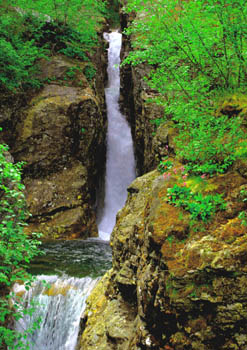 Overnight. Overnight.
Day 6- July, 20 (August, 10)
After breakfast and check out – transfer to the railway station to take the express tourist train for a ride along the legendary Circum Baikal Line of Trans-Siberian Railroad which was built under the last Russian tsar Nicolas-the 2nd and called “The Golden Buckle of Steel Belt of Russia” because of enormous cost due to the difficulty in constructing many tunnels. During this comfortable train ride you will certainly enjoy gorgeous southern landscapes of Lake Baikal and have plenty opportunities for taking good pictures. Lunch and dinner en route. Upon arrival at Port Baikal we board the ferry we board the ferry for a 20-minutes ride along the Baikal to the Listvyanka settlement. Upon arrival in Listvyanka, located in the mouth of the Angara river from Lake Baikal, – transfer to the guest house. Overnight.
Day 7- July, 21 (August, 11)
After breakfast and check out, visit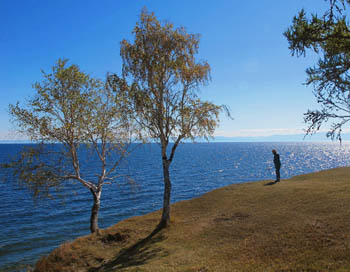 Baikal Ecology Museum which has an excellent collection of exhibits of Lake Baikal flora and fauna and see the Baikal aquarium featuring besides alive fishes also a couple of the lakes’s only mammal – Baikal fresh water seals.Then we drive to the pier to board the hydrofoil for half an hour ride to the village of Bolhiye Koty – the former gold mining area in the early 19-th century, and now – the village of fishermen and hunters, research workers of the Biology Station of Irkutsk State University. Baikal Ecology Museum which has an excellent collection of exhibits of Lake Baikal flora and fauna and see the Baikal aquarium featuring besides alive fishes also a couple of the lakes’s only mammal – Baikal fresh water seals.Then we drive to the pier to board the hydrofoil for half an hour ride to the village of Bolhiye Koty – the former gold mining area in the early 19-th century, and now – the village of fishermen and hunters, research workers of the Biology Station of Irkutsk State University.
After lunch at Baikal Guest House we will start our 2 days trekking to the village of Bolshoye Goloustnoye ( total distance of 18 km). Passing by fantastic Screaper Crags we proceed further by the so-called Evil’s Bridge , and before the sunset set up our tent camp in one of the lovely small bays protected from winds. We‘ll then cook dinner over the camp fire top, enjoy it, and then relax in the beautiful Baikal surroundings with tranquility at your tent… from Koty to Kadilnaya.
Day 8 - July, 22 (August, 12)
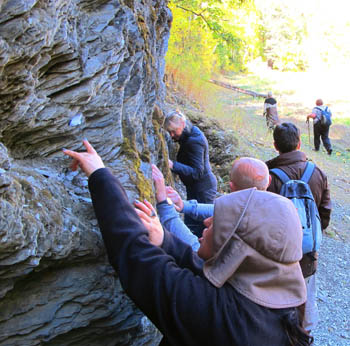 After breakfast and packing up we continue our trekking along the lakeshore via the Bolshaya Kadilnaya Bay – the location of national park ranger station within a small strictly prohibited nature wildlife sanctuary. After breakfast and packing up we continue our trekking along the lakeshore via the Bolshaya Kadilnaya Bay – the location of national park ranger station within a small strictly prohibited nature wildlife sanctuary.
Next stop shall be at Malaya Kadilnaya Bay where in small rocky valley the cave of Prince Kropotkin is located, which we can visit , if time allows.
Lunch again – prepared over the campfire. After some time at leisure taking pictures of flourishing plant life we resume our way.
In about 6 km of further walk we reach picturesque valley of the Ushanya Pad (Hollow), and then walking another 5 km we will reach the Semenovka hollow. Here, those who want may visit the Baikal at the Sukhoye Ozero (“Dry Lake”) or Gorhyeon in Buryat language (“The Black Spring”)– a very special place, that is believed to be one of the Earth’s power spots. One of its remarkable features is that the lake’s bowl is filled with water only once in few years and where the water comes from to fill out the bowl and where the water then leaves the lake to – nobody knows. Here at the Dry Lake Rock one can feel the energy of the Earth, and tune into the complex Earth grid that has been known and related to by people around the world from times immemorial.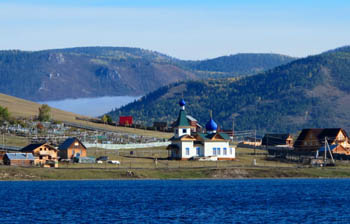
Perhaps, after squeezing up against the Dry Lake Petrophyte Crags thought to be a link to the Earth Grid we will notice a subtle yet obvious shift in our own energy. Or at least you can try your feelers sense the energy in the Dry Lake environment around. The energy close to the Earth grid here is rich in ions that can boost one’s energy and make feel recharged…
Even looking around one can easily notice that the small Dry Lake bowl within a very small area of 500 square meters is surrounded by nearly all specie of trees and plants that are known in Lake Baikal area.
After our short “meditation” we will continue to the village of Bolshoye Golustnoye (5 km more along the gravel road or the lakeshore), founded in 1673 by a Buryat person named Soriel, and famed for rich biodiversity of the delta of Goloustnoye river, unique Church of St.Nicolas-the-Miracle-Worker with well preserved miraculous wonder Icon Sculpture of St. Nicolas, as well as for warm hospitality of local 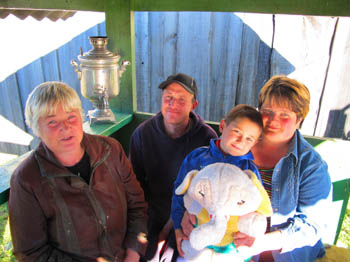 people ( over 650 inhabitants). people ( over 650 inhabitants).
Upon arrival in the village of B.Goloustnoye and after having been introduced to our host familys of Zoya we will have a home made lunch of tasty Siberian cuisine. Then we proceed on a guided and easy walk to the delta of Goloustnyaya river. The name of the river itself means “bare delta”, and the delta of the river here is a unique one. It is the only place on the western shore of Baikal where waterfowl nest and dwell. In swampy areas and tiny shallow lakes of the delta there nest Mallards, Baikal teals, goosanders , tufted ducks as well as ruddy shelducks, Asiatic do-witcher, white-tailed and imperial eagle, corncrake and others – over 100 nesting pairs of breeding birds and thousands of migrating ducks are encountered here every year.
Upon return from the walk and before dinner enjoy Russian banya – (steam bath), which is a y national specialty of Russian, a treatment for just about any sickness, a place to clean, a place to think, and a place to relax. Outside urban Russia, Banya is used as the most common form of washing,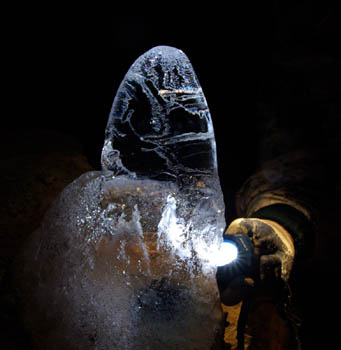 especially during the cold winter months. Inside a fire heats up stones and water, the temperature can be rising as much as 115 degrees Celsius (of course, for you to feel yourself comfortable your hosts will keep the temperature significantly lower). And certainly, a supply of birch besoms will be provided, because no Russian Banya is complete without the beating with fresh birch branches…- true Siberian natural massage experience! especially during the cold winter months. Inside a fire heats up stones and water, the temperature can be rising as much as 115 degrees Celsius (of course, for you to feel yourself comfortable your hosts will keep the temperature significantly lower). And certainly, a supply of birch besoms will be provided, because no Russian Banya is complete without the beating with fresh birch branches…- true Siberian natural massage experience!
After the above enjoyment we will have dinner, and if you’re not tired – learn a very popular Russian song “Glorious Sea-Holy Lake Baikal”.
Day 9 - July, 23 (August, 13)
After breakfast we bid our farewell to the hosts and complete with our backpacks and camp gear startou out for the next portion of our trekking trip. We first will hike to the recently discovered Okhotnichiya Cave (Hunter’s Cave). The cave is located at the mountain slopes an a distance of about 12 km from our family stay. The hike will take us around 3.5 hours given the trail in the hilly terrain. Escorted by our experienced and knowledgeable guide we enter the Hunter’s cave, sometimes using the ropes but only for convenience since touring the Hunter’s cave with us will not reauire special speleological skills, one just has to be moderately fit.
The tour of the Cave visiting the Television, Transperent, Skeletons and some other galleries will take us approximately 1 hour, or even more depending on your impressions, which we guess have to be great. Get ready for nice pictures inside of this still unexplored cave that besides the cave formations contains in some of its huge corners remains of great many wild animals, some said as prehistoric.
After exploration of the Hunter’s Cave and we will prepare over meals over the campfire, set up a camp and overnight.
|
 "...Mountains of the Primorsky ridge, low and massive, seem to be monoliths. But there’re such mountains that are like termitaries penetrated with grottoes, galleries and well caves. For thousand years water had been washing away limestone and quicksand, leaving around the formed emptiness firm covers of granitoids. "...Mountains of the Primorsky ridge, low and massive, seem to be monoliths. But there’re such mountains that are like termitaries penetrated with grottoes, galleries and well caves. For thousand years water had been washing away limestone and quicksand, leaving around the formed emptiness firm covers of granitoids.
« As if we go down to the Moria… » - the girl from our group has told, moving on long and narrow, as a chimney pipe, corridor of the Hunter’s Cave which concave and arches are so high that even a bright lantern would fail to illuminate them. I do not know how to consider the presence of the Moria over here, since we met neither orks nor gnomes, but we have seen enough other wonders! A photographer won’t get bored here. Figured dropstone and stalactite formations on the cave walls create inimitable ornaments of the halls. Here and there you’ll also see richly varied in form and shape ice stalagmites. A lot of times, the content enclosed under its transparent ice cover creates interesting images. Color scales of the arches and walls as though emphasize jejunity of the top world. Total absence of illumination from the outside makes your decision on the composition of light unchallenged.
Remember to take a nice flash when going to the cave, a stock of accumulators as well good choice of non-impulse type of light sources of different capacity – for the backlighting of underground ice sculpture a pocket lamp will be well enough, but as for the lighting of big halls of the Hunter Cave one will certainly need a very bright lighting source, and , probably, not a single one…" (“Wonders of the HUNTER CAVE” , by Andrey Tanichev, your guide and photo expert on the tour)
|
Days 10- 12 - July,24-26 (August, 14-16) 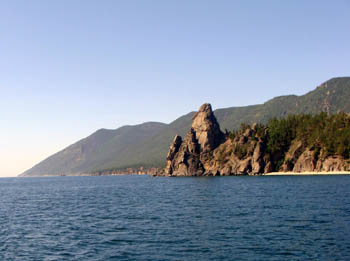
After breakfast and packaging we start out walking further to the river of Ilga , with walking distance of about 14 km on Day 10, and on Day 11 .the 16 km long trek portion will start with an ascend of the Ilga Pass and after going it down - along the lakeshore until reaching the Verkhniye Khomuty Cape where there is a nice place for setting up a tent camp and overnight.
These days will be passing by some of the most picturesque places of Southern Baikal which provide many opportunities for taking nice shots of the Baikal and taiga-woods.
Day 12 - July, 26 (August, 16)
Before lunch we shall reach the famous Peschanya Bay (meaning “Sandy”), often referred to as the Siberian Riviera due to the great number of sunshine observed here (mid annual temperature here is positive - +0.4 Celsius). Upon approaching Peschanaya Bay we will have lunch , then enjoy a guided walk to the Babushka Bay, the Small Bell tower Craig to take pictures of panoramic 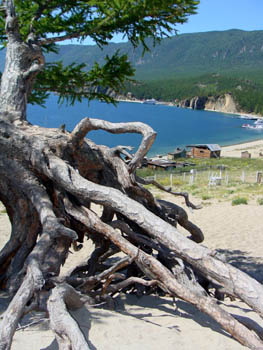 evening views on the taiga-woods of the Cedar Pass and other natural settings at sunset. evening views on the taiga-woods of the Cedar Pass and other natural settings at sunset.
in particular here you will observe one of the lake’s natural wonders – the so-called “Wandering Trees”). Dinner will feature some of the famous Baikal specialties. Overnight in tents.
“At Nature's beckoning, weird and fantastic pine trees ran out onto the sands, the so-called stilted trees, like green-horned deer. The winds of decades blew the sand away from under their roots, and the trees, so as not to fall, stretched their roots deeper; again the wind denuded them, and the trees doggedly resisted. And the pines are standing as if on stilts.” (Mark Sergeev)
Day 13 - July, 27 (August, 17)
Before our hydrofoil takes us back to Irkutsk we will still have enough time to explore
other nearby sites of the Sandy Bay. Our guides will take you to the Cedar Pass from where the great view will open up again for you the majestic Baikal…
In the evening we will board the hydrofoil for return ride to Irkutsk. Upon arrival in Irkutsk we’ll be transferred r to the hote for check in and Farewell Party.
Day 14- July, 28 (August, 18)
After breakfast -check out and transfer to the airport.
|




 Welcome to Irkutsk – “Paris of Siberia”, capital of its great Eastern part – Siberia’s Microcosm and the gateway to Siberia’s Pearl – Lake Baikal! Upon arrival and meeting - we will have sighseeing tour of Irkusk visitng its most atmospheric sites. After lunch in the downtown restaurant we we depart by coach to the start of our trekking trip - to the town of Sludyanka (127 km south of Irkutsk) which is located at the southern tip of Lake Baikal. The town takes its name from the Russian word for mica, reflecting the numerous mineral deposits in the area.
Welcome to Irkutsk – “Paris of Siberia”, capital of its great Eastern part – Siberia’s Microcosm and the gateway to Siberia’s Pearl – Lake Baikal! Upon arrival and meeting - we will have sighseeing tour of Irkusk visitng its most atmospheric sites. After lunch in the downtown restaurant we we depart by coach to the start of our trekking trip - to the town of Sludyanka (127 km south of Irkutsk) which is located at the southern tip of Lake Baikal. The town takes its name from the Russian word for mica, reflecting the numerous mineral deposits in the area. Day 2 - July, 16 (August, 06)
Day 2 - July, 16 (August, 06)  Day 3 - July, 17 (August, 07)
Day 3 - July, 17 (August, 07) visiting most of the beautiful environs and picnicking near the river Kamenka. Return to the camp for dinner and overnight. Total walking distance today is about 10 km.
visiting most of the beautiful environs and picnicking near the river Kamenka. Return to the camp for dinner and overnight. Total walking distance today is about 10 km. Overnight.
Overnight. Baikal Ecology Museum which has an excellent collection of exhibits of Lake Baikal flora and fauna and see the Baikal aquarium featuring besides alive fishes also a couple of the lakes’s only mammal – Baikal fresh water seals.Then we drive to the pier to board the hydrofoil for half an hour ride to the village of Bolhiye Koty – the former gold mining area in the early 19-th century, and now – the village of fishermen and hunters, research workers of the Biology Station of Irkutsk State University.
Baikal Ecology Museum which has an excellent collection of exhibits of Lake Baikal flora and fauna and see the Baikal aquarium featuring besides alive fishes also a couple of the lakes’s only mammal – Baikal fresh water seals.Then we drive to the pier to board the hydrofoil for half an hour ride to the village of Bolhiye Koty – the former gold mining area in the early 19-th century, and now – the village of fishermen and hunters, research workers of the Biology Station of Irkutsk State University. After breakfast and packing up we continue our trekking along the lakeshore via the Bolshaya Kadilnaya Bay – the location of national park ranger station within a small strictly prohibited nature wildlife sanctuary.
After breakfast and packing up we continue our trekking along the lakeshore via the Bolshaya Kadilnaya Bay – the location of national park ranger station within a small strictly prohibited nature wildlife sanctuary. 
 people ( over 650 inhabitants).
people ( over 650 inhabitants). especially during the cold winter months. Inside a fire heats up stones and water, the temperature can be rising as much as 115 degrees Celsius (of course, for you to feel yourself comfortable your hosts will keep the temperature significantly lower). And certainly, a supply of birch besoms will be provided, because no Russian Banya is complete without the beating with fresh birch branches…- true Siberian natural massage experience!
especially during the cold winter months. Inside a fire heats up stones and water, the temperature can be rising as much as 115 degrees Celsius (of course, for you to feel yourself comfortable your hosts will keep the temperature significantly lower). And certainly, a supply of birch besoms will be provided, because no Russian Banya is complete without the beating with fresh birch branches…- true Siberian natural massage experience!






